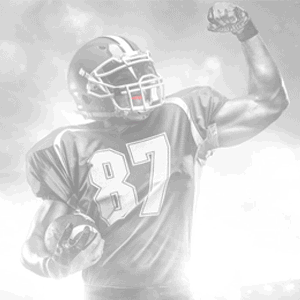5 Tips To Make Sure Your Team’s Mouthguards Last

 Sports seasons are long and arduous, and the last thing you want to think about as an athletic trainer or coach is replacing athletic equipment, particularly after the season begins. Yet, by mid-season you’ll likely find yourself replacing one player’s facemask, while three others need new mouthguards and another player lost his shoes.
Sports seasons are long and arduous, and the last thing you want to think about as an athletic trainer or coach is replacing athletic equipment, particularly after the season begins. Yet, by mid-season you’ll likely find yourself replacing one player’s facemask, while three others need new mouthguards and another player lost his shoes.
Stop wasting time and money on new equipment, especially gear that may last throughout the season and beyond if properly maintained; such as mouthguards. Mouthguards, after all, are one of the most often replaced pieces of equipment during the season.
However, there are steps for your players to take to help make their mouthguards last longer. Here are five tips to help your mouthguards make it through the year:
1. Keep It Safe
One of the simplest ways to make sure your team’s mouthguards last, is to make sure your players aren’t just throwing them in the bottom of their team bags. That’s a recipe for a lost or damaged mouthguard.
When a piece of equipment is treated carelessly, it’s typically forgotten about until the next game or practice, if it’s even remembered at all. Mouthguards — particularly personalized, custom mouthguards featuring team logos and each player’s name and number — are an essential piece of the uniform that should be treated as well as a jersey, helmet or pair of cleats.
Make sure your players are keeping their mouthguards in protective cases. Much like hanging up their jersey or getting the dirt out of their cleats, properly maintaining their mouthguards ensures they’re not getting damaged or lost.
2. Keep It Clean
Similar to storage, it’s important your players are properly cleaning their mouthguards as well.
Like any other piece of equipment, mouthguards collect bacteria. Being in the mouth, they likely collect even more bacteria than most pieces of gear and that bacteria may cause your players to get sicker, faster. Make sure your players are cleaning off their mouthguards before and after every game or practice.
While a quick rinse works, using an effervescent denture cleaner is the best practice for ensuring a clean mouthguard. And it’s important to note that toothbrushes, toothpaste and mouthwash may actually damage and breakdown the guard, sacrificing its effectiveness and protection.
3. Keep It Unchewed
Mouthguards aren’t dog toys, yet oftentimes, they tend to look like they were in the mouth of a family pet, not an athlete.
That’s because players have a habit of chewing on their mouthguards, especially when their mouthguard doesn’t fit properly or is uncomfortable — a clear sign that the guard is ineffective. While mouthguards are meant to protect the mouth (it’s not just a clever name!), the mouth is still able to damage them, as chewing wears heavily on the protective gear.
Chewing causes the material to breakdown and deform, which compromises both the fit and protection of the mouthguard. The less your players chew on their guards, the longer those guards keep them protected.
4. Keep It As It’s Intended
It should go without saying, but mouthguards — like all athletic equipment — should be used for their intended purpose. But that isn’t always the case.
Some mouthguards come with a strap and that strap serves two very specific purposes: it shows the officials your players are in compliance and wearing their mouthguards and it keeps your players’ mouthguards from landing on the field, court or ice if they get dislodged during competition.
There’s one purpose the strap doesn’t serve: it’s not a handle for a helmet. Yet players always seem to carry their helmets by their mouthguard strap!
It’s important that players use their equipment correctly. If the strap breaks off their mouthguard, further damage is going to occur and that could lead to an easily avoidable injury.
5. Keep It In The Shade
Whether your team uses generic boil-and-bite guards or custom-made, personalized mouthguards, one of the easiest ways to have them last is to keep them out of the heat. High temperatures, such as hot water, hot surfaces or direct sunlight will have harmful effects on any type of mouthguard, regardless of how it’s made.
Make sure your team stores their mouthguards in a cool, dry place. Because when they get out on the field, court or ice, and their mouthguards fit properly and protect perfectly, their performance becomes red hot!
Get the most out of your team gear. When mouthguards and other pieces of athletic equipment are used properly and maintained correctly, they last longer.






